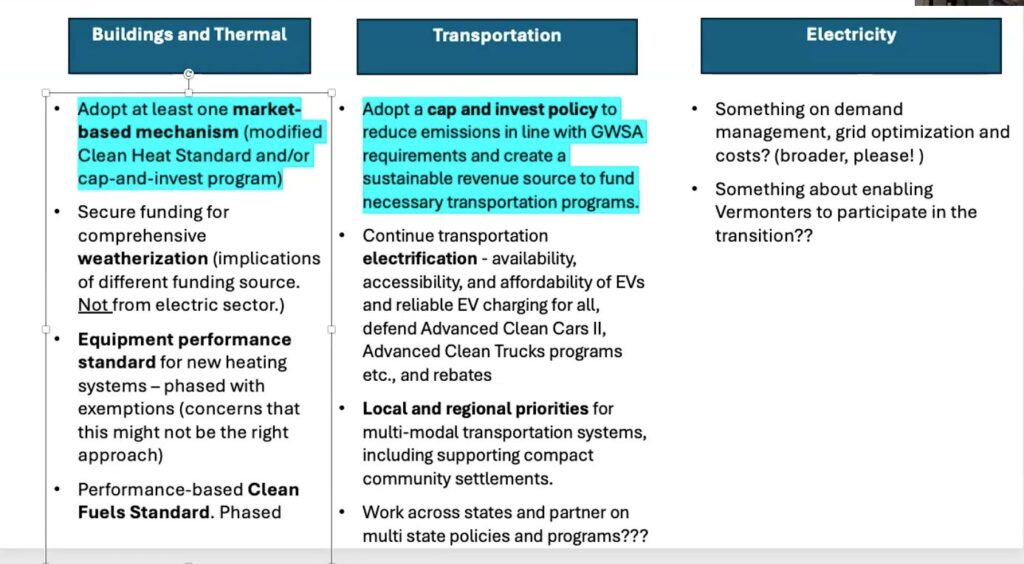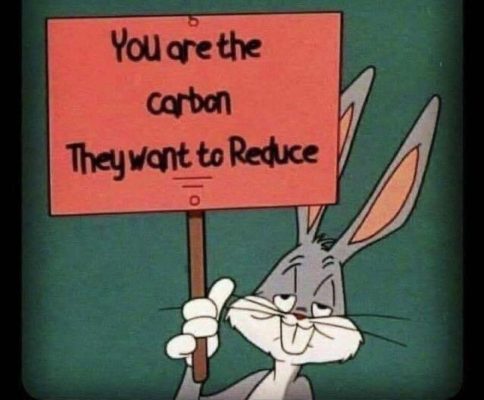While the question remains to be seen if a majority of elected legislators got the message on November 5th that Vermonters want nothing to do with home heating taxes or any other fees and charges that make life in our state more unaffordable than it already is, one entity assuredly did not get the message: the Vermont Climate Council.
This body of 23 unelected so-called experts created under the Global Warming Solutions Act (GWSA) is in the process of updating their Climate Action Plan, which is supposed to be the guide map for the legislature for meeting the greenhouse gas reduction mandates of the GWSA. Right back at the top of their list, a Clean Heat Standard! And or a “cap and invest” program – that’s politicalese for tax and spend. Both of these policies are for all intents and purposes carbon taxes on home heating fuels. One being po-TAY-to, the other po-TAH-to.

Beyond home heating, the Climate Council is recommending a similar carbon tax on gasoline and diesel fuel as a mechanism for lowering the greenhouse gas emissions from the transportation sector. One possible suggestion is one economy-wide “cap and invest” (that again: tax and spend) carbon tax on home heating and transportation fuels.
As Richard Cowart of the Climate Council’s Cross Sector Mitigation subcommittee noted, somewhat obviously, “The only way to promote electrification, particularly for low and moderate income households, and to promote weatherization in those households, would be to create a revenue source that gonna help them do that…. And we should be really clear and make sure that the revenue source is going to actually be created to promote the actions that we’ve identified as essential.”
Now that number – the “essential” revenue — has been identified as being in the billions of dollars. $1 – $4 per gallon added to home heating fuel. Vermonters pretty handily rejected this concept on election day. Nevertheless….
As T.J. Poor of the Department of Public Services (DPS) pointed out (and he has been pointing out for a year and a half), “The Global Warming Solutions Act says we have to choose the policies that meet the goals in the most cost effective way, but it does not require the policies to be cost effective.” He goes on, “Personally I think that’s not a good framing in the Global Warming Solutions Act, but it is the way it’s stated. We have these targets that we have to meet whether its cost effective or not…. The Global Warming Solutions Act doesn’t care about cost effectiveness.”
Melissa Bailey, also of the DPS, backed up Poor, adding, “We can do what we can to ensure equity and affordability, but at the end of the day we’re charged with meeting ghg reductions whether or not they are cost effective either to consumers or society writ large.”
If you say passing a law of this – or any – magnitude that has no concern whatsoever for either its cost to consumers or cost effectiveness in general is the dumbest, most irresponsible thing you’ve ever heard of, I’d say you win a prize. Still, when Poor suggested that the Climate Council consider recommending a legislative change to the law that would require cost effectiveness to be considered when adopting climate policy, you could hear the crickets in the background mingled with the sound of dropping pins.
These people are dangerous, and the Climate Council needs to be dissolved. Period. Top of the list New Year’s resolution for incoming legislators in 2025.
First of all, we don’t need it. It’s an unaccountable waste of money. We have a Climate Action Office staffed with seven or eight people (not even sure we need that, but certainly not both). Additionally, we have two legislative committees of jurisdiction to look into and deliberate these matters who are, at the end of the day, accountable to the voters – as any policy making body should be. And in this mess, the lawmakers wrote and passed the GWSA deserve the blame.
In a reluctant defense of the Climate Council, they are legally bound to be irresponsible idiots. That they excel at it is on them. But as Poor and Bailey pointed out, the Council’s task is to meet the GWSA mandates and that is all. God help anyone or anything that gets in the way of that mission, even if its granny trying to survive winter in a mobile home on a fixed income. We’re living the plot of a sci-fi movie where the techies create a robot to make the world a perfect place only for the robot to determine the best way to do that is kill all the people, and then it sets about doing so until it is reprogramed or destroyed. Or succeeds in wiping everybody out.
Last week the Vermont Republican House Caucus issued a press release stating that they would be putting forward a bill to fully repeal Act 18, the Clean Heat Standard law, not just put a pause on its moving forward. This is a great start, but the root cause of the problem is the Global Warming Solutions Act. That even more urgently needs to be, if not repealed in full, reformed to the point where it is incapable of being the source of financial harm to consumers or society writ large.
